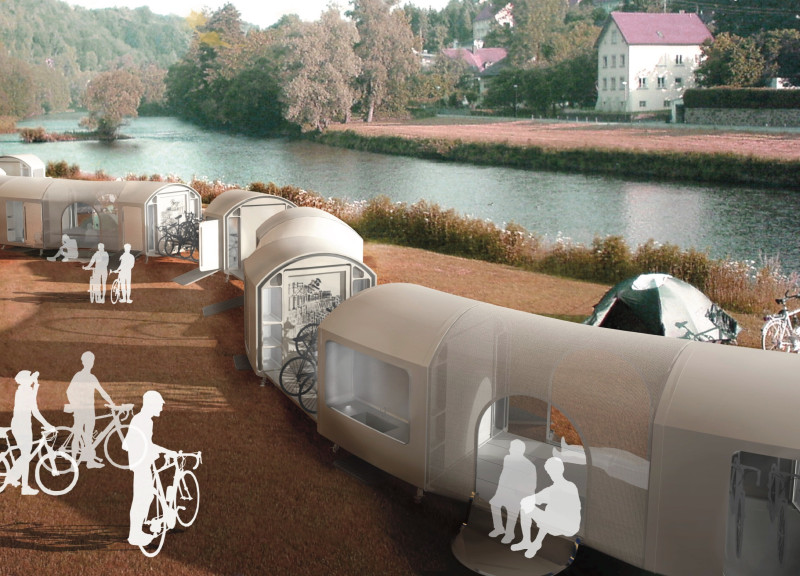5 key facts about this project
The design explores modular units intended to enhance the cycling experience along popular routes, with a focus on portability, sustainability, and adaptability. Two interconnected pod types are introduced, each designed to serve specific functions while meeting diverse user needs. These modules offer customizable configurations for users to create a space that works for them.
Modular Design
Pod A acts as a dedicated bike storage unit, accommodating up to three bicycles. The layout includes a folding bed and storage for equipment, allowing for practical use of space for both storage and resting. This arrangement serves cyclists looking for efficiency and convenience in their journey.
Pod B serves as a multifunctional area combining essential bathroom and kitchen facilities. This module includes a toilet, shower, sink, and ample storage. The thoughtful design ensures that cyclists have access to important amenities during their stops, making their experience more comfortable and enjoyable.
Sustainability Features
The modules are constructed from recycled PET material, demonstrating a commitment to environmental responsibility. This choice supports durability while reducing waste. In addition, solar photovoltaics are integrated to provide renewable energy, allowing the units to be charged independently. This feature enhances their practicality, making them easy to relocate after use.
User Configurations
The design takes into account different types of cyclists, including hardcore, social, and casual users. Each setup can be adjusted to offer necessary amenities for sleeping, dining, or bike maintenance. This flexibility addresses the varied needs of users. For example, hardcore cyclists can access essential services quickly, while casual cyclists can enjoy social space through larger kitchen and restroom facilities.
The overall design creates a welcoming space for cyclists, encouraging community interaction through its practical modularity. By integrating essential functions and sustainable practices, it provides an effective solution in cycling infrastructure. The connection between the pods facilitates a functional environment, allowing users to comfortably engage with their surroundings while enjoying their journey.


























